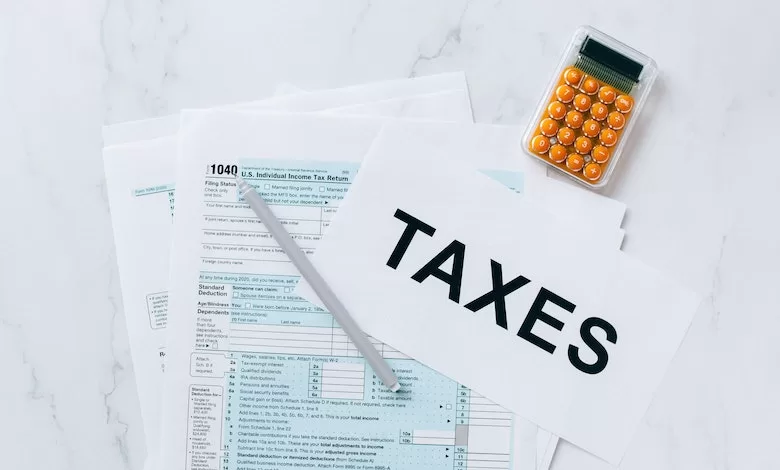
The Role of the IRS in Tax Collection: A Comprehensive Overview
The Role of the IRS in Tax Collection: A Comprehensive Overview
Introduction
Tax collection is the lifeblood of any government, providing the funds necessary to support public services, infrastructure, and social programs. In the United States, the Internal Revenue Service (IRS) plays a pivotal role in this process. This article delves into the multifaceted responsibilities of the IRS in tax collection, shedding light on its crucial role in maintaining the financial health of the nation.
1. What is the IRS?
Before we explore its role in tax collection, let’s clarify what the IRS is:
The IRS, or Internal Revenue Service, is a federal agency within the United States Department of the Treasury. Established in 1862, its primary mission is to administer and enforce tax laws. This agency ensures that individuals and businesses pay their fair share of taxes to fund government activities and services.
2. Tax Law Administration
The IRS is responsible for administering and enforcing the tax laws set forth by the U.S. Congress. This involves:
**Subheading 1: Tax Code Interpretation**
The IRS interprets the complex tax code, translating it into practical guidelines for taxpayers. They issue rulings and guidance documents to clarify tax laws, making it easier for individuals and businesses to understand their tax obligations.
**Subheading 2: Rule Enforcement**
The IRS enforces tax laws by investigating potential violations, conducting audits, and imposing penalties when necessary. Through audits, they verify the accuracy of tax returns, ensuring that taxpayers report their income and deductions correctly.
3. Tax Collection
One of the most crucial roles of the IRS is collecting taxes. This process involves several key elements:
Subheading 1: Tax Return Processing
When taxpayers submit their returns, the IRS processes them to determine the amount of tax owed or the refund due. This step involves verifying income, deductions, and credits claimed by taxpayers.
Subheading 2: Payment Collection
The IRS collects taxes through various methods, including electronic payments, checks, and wage garnishments. They also offer installment plans for those who can’t pay their taxes in a lump sum.
Subheading 3: Delinquent Tax Collection
When taxpayers fail to pay their taxes, the IRS employs various collection methods, such as levies on bank accounts and property liens, to recover the owed amounts. Their goal is to encourage compliance while safeguarding government revenue.
4. Taxpayer Assistance and Education
The IRS doesn’t solely focus on enforcement and collection; it also provides vital assistance to taxpayers:
Subheading 1: Information Resources
The IRS offers a wealth of information through its website, publications, and local offices. Taxpayers can access guides, forms, and tools to help them understand and meet their obligations.
Subheading 2: Customer Service
The IRS operates a helpline where taxpayers can seek assistance with tax-related questions. They also provide support through their local offices, ensuring that taxpayers receive the guidance they need.
5. Fraud Detection and Prevention
Preventing tax fraud is another significant aspect of the IRS’s role:
Subheading 1: Identity Theft Protection
The IRS employs measures to protect taxpayers from identity theft, a common form of tax fraud. This includes monitoring tax returns for suspicious activity and offering identity protection services.
Subheading 2: Fraud Detection
The IRS utilizes advanced technology to detect fraudulent tax returns. Their systems flag irregularities, leading to investigations and corrective actions.
6. International Taxation
In an increasingly globalized world, the IRS also plays a role in international tax matters:
Subheading 1: Tax Treaties
The IRS helps negotiate and enforce tax treaties with other countries, ensuring that taxpayers do not face double taxation on their international income.
Subheading 2: Reporting Requirements
U.S. citizens and residents with foreign financial assets must comply with reporting requirements to prevent tax evasion. The IRS monitors compliance with these rules to maintain tax fairness.
7. Tax Compliance Programs
The IRS runs various compliance programs to encourage voluntary compliance and address specific tax issues:
Subheading 1: Voluntary Disclosure Programs
To encourage taxpayers to come forward and correct errors or omissions on their returns, the IRS offers voluntary disclosure programs with reduced penalties for those who voluntarily disclose their non-compliance.
Subheading 2: Whistleblower Program
The IRS rewards individuals who report tax evasion by others. This program encourages whistleblowers to provide vital information, aiding in the detection of tax fraud.
Conclusion
The IRS’s role in tax collection extends far beyond simple tax enforcement. It encompasses tax law administration, taxpayer assistance, fraud prevention, international taxation, and compliance programs. By performing these functions effectively, the IRS ensures the equitable collection of taxes and the financial stability of the United States. Understanding the multifaceted role of the IRS is crucial for taxpayers and businesses alike, as it highlights the importance of complying with tax laws and seeking assistance when needed.
Read this article
Tax Strategies for High-Income Earners: Maximizing Wealth Through Smart Planning




